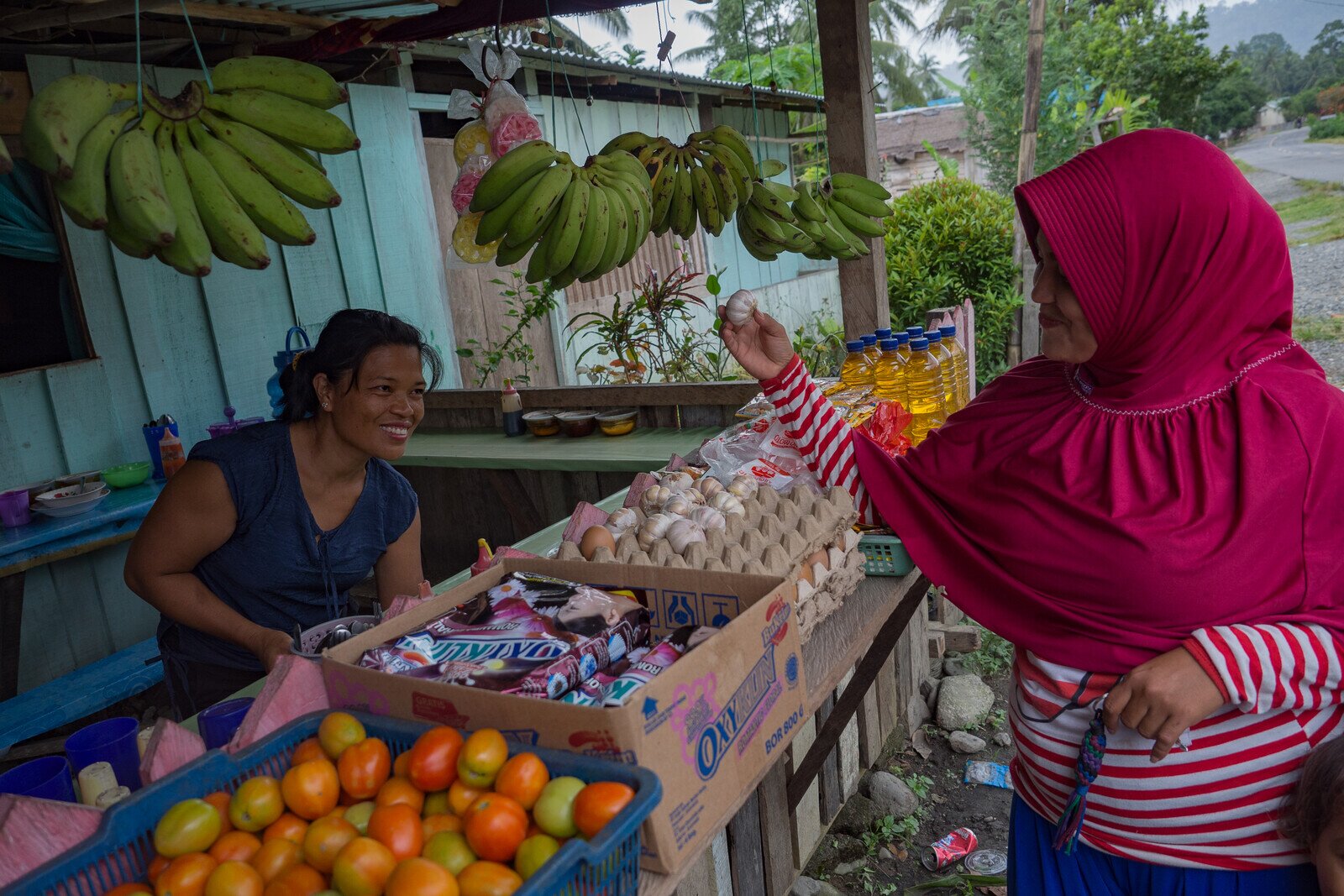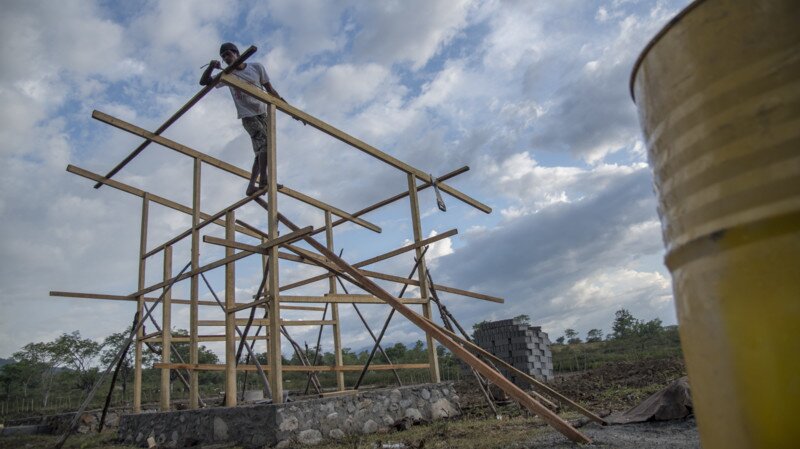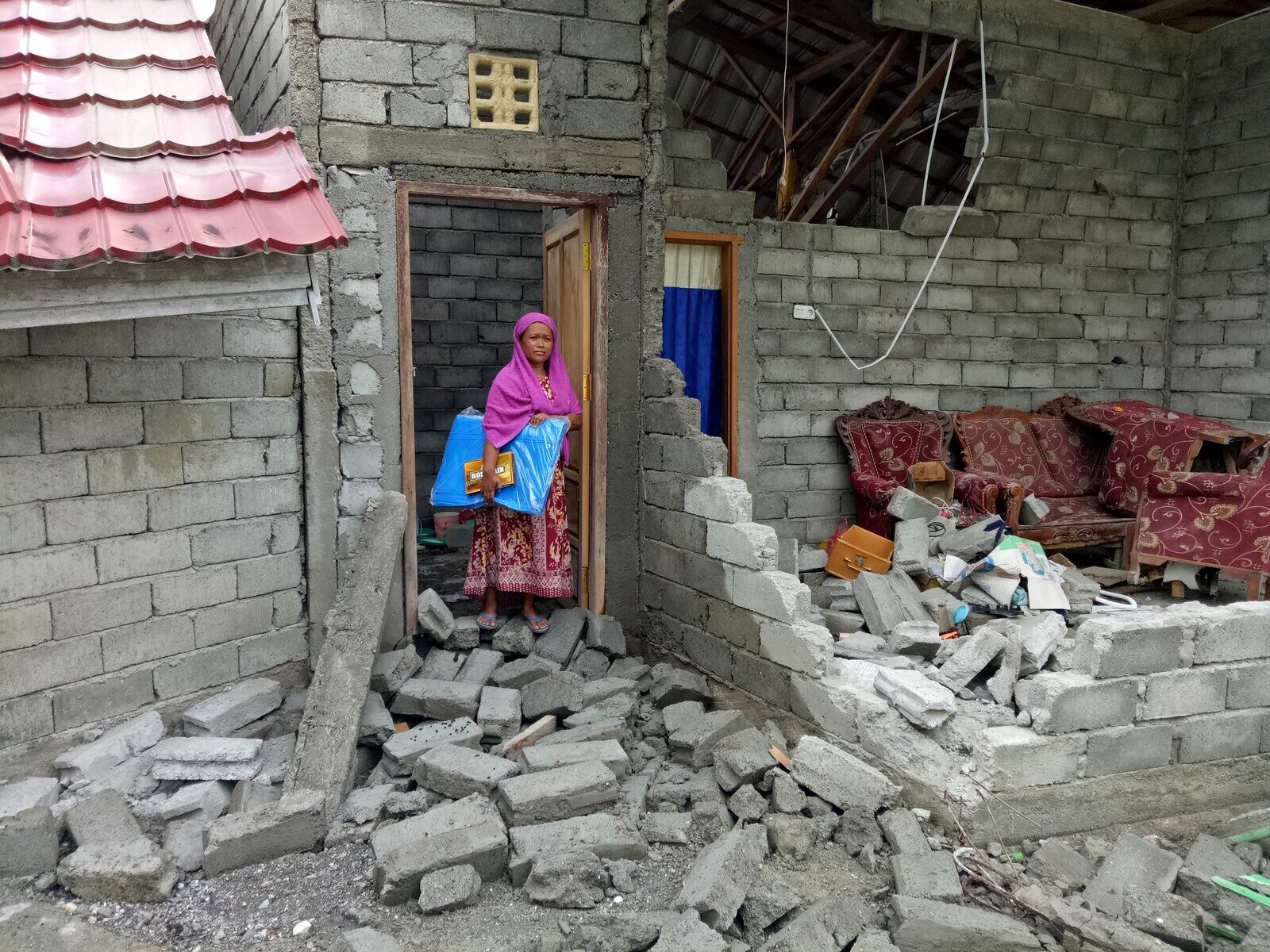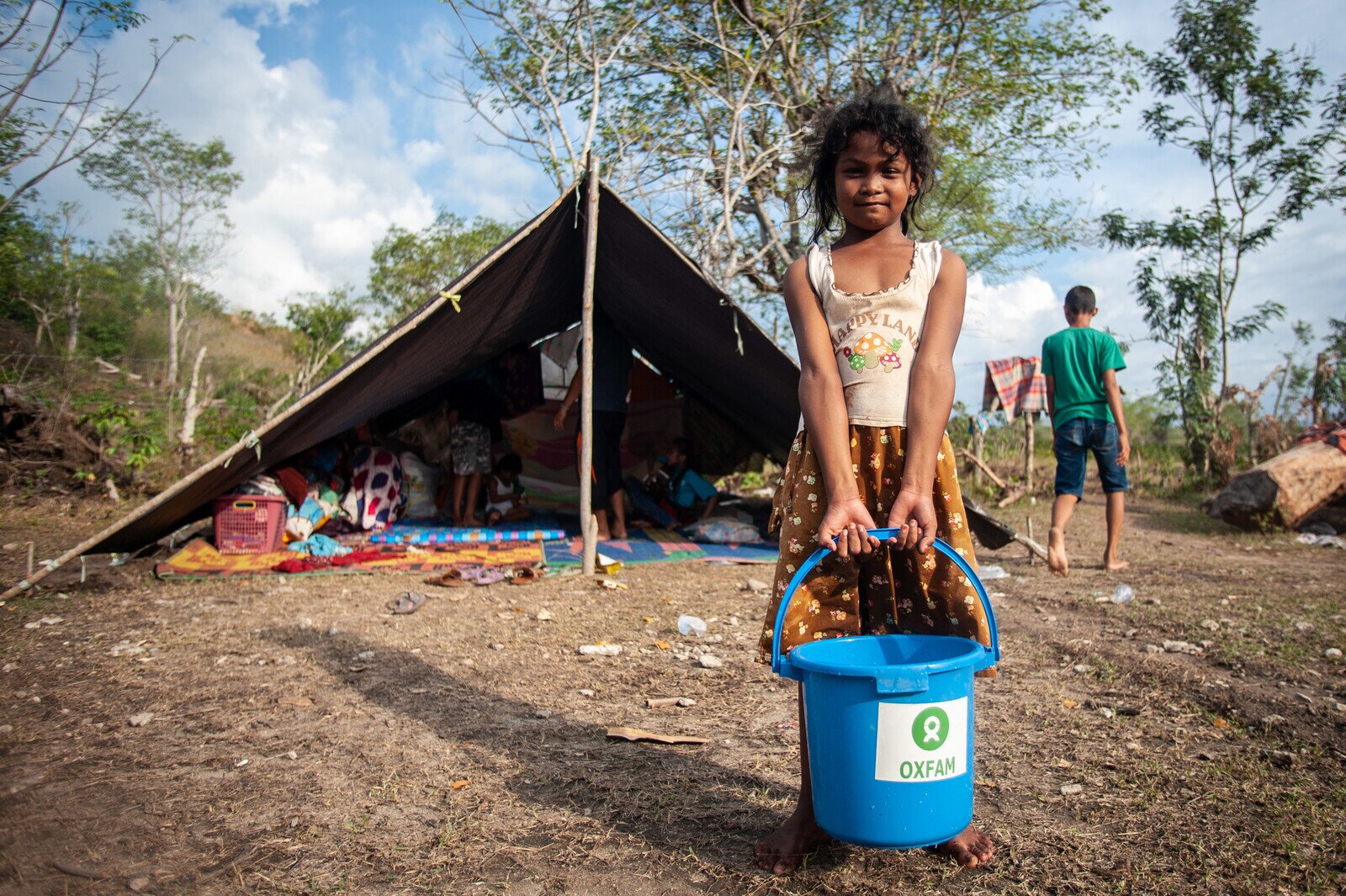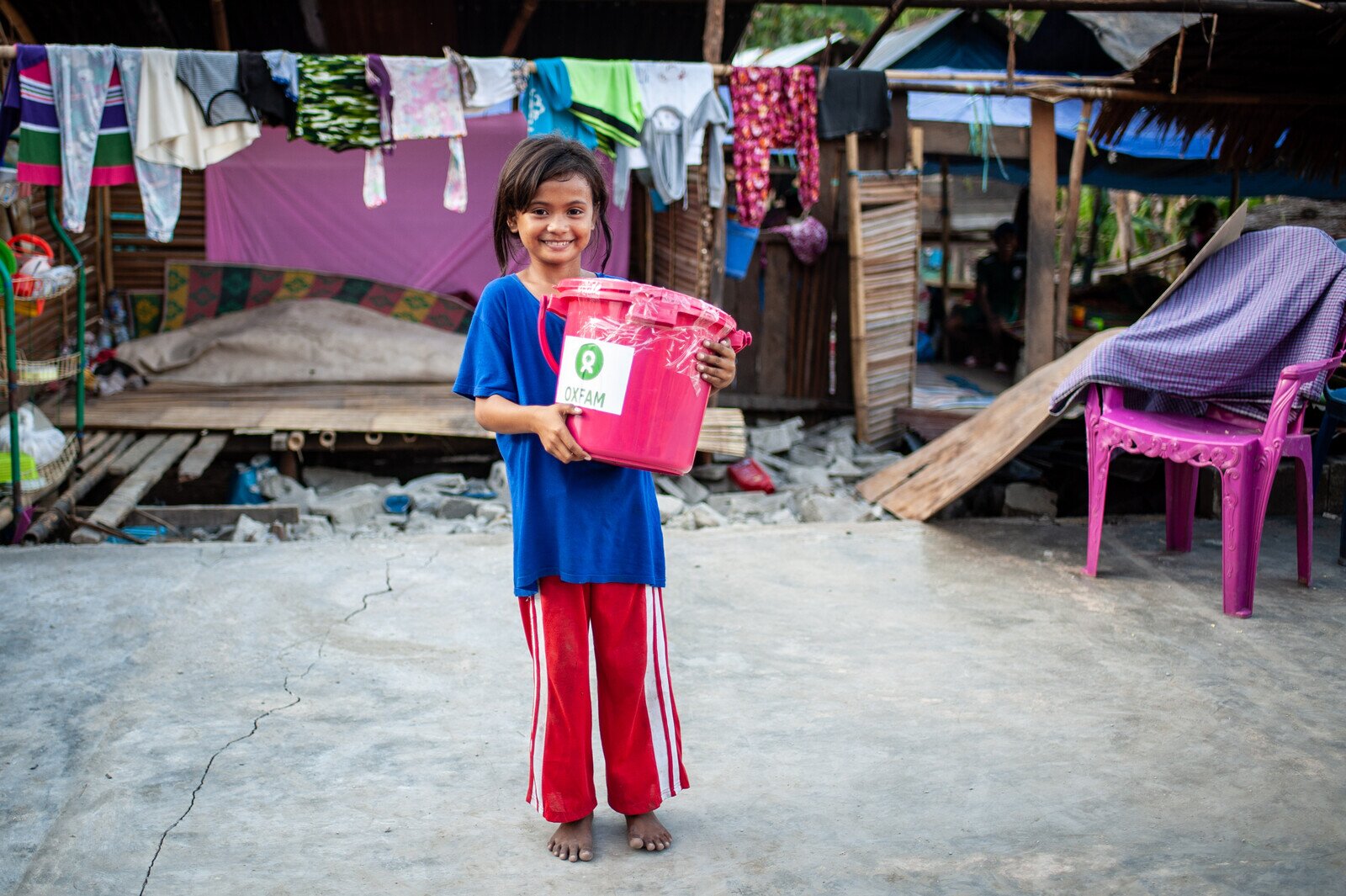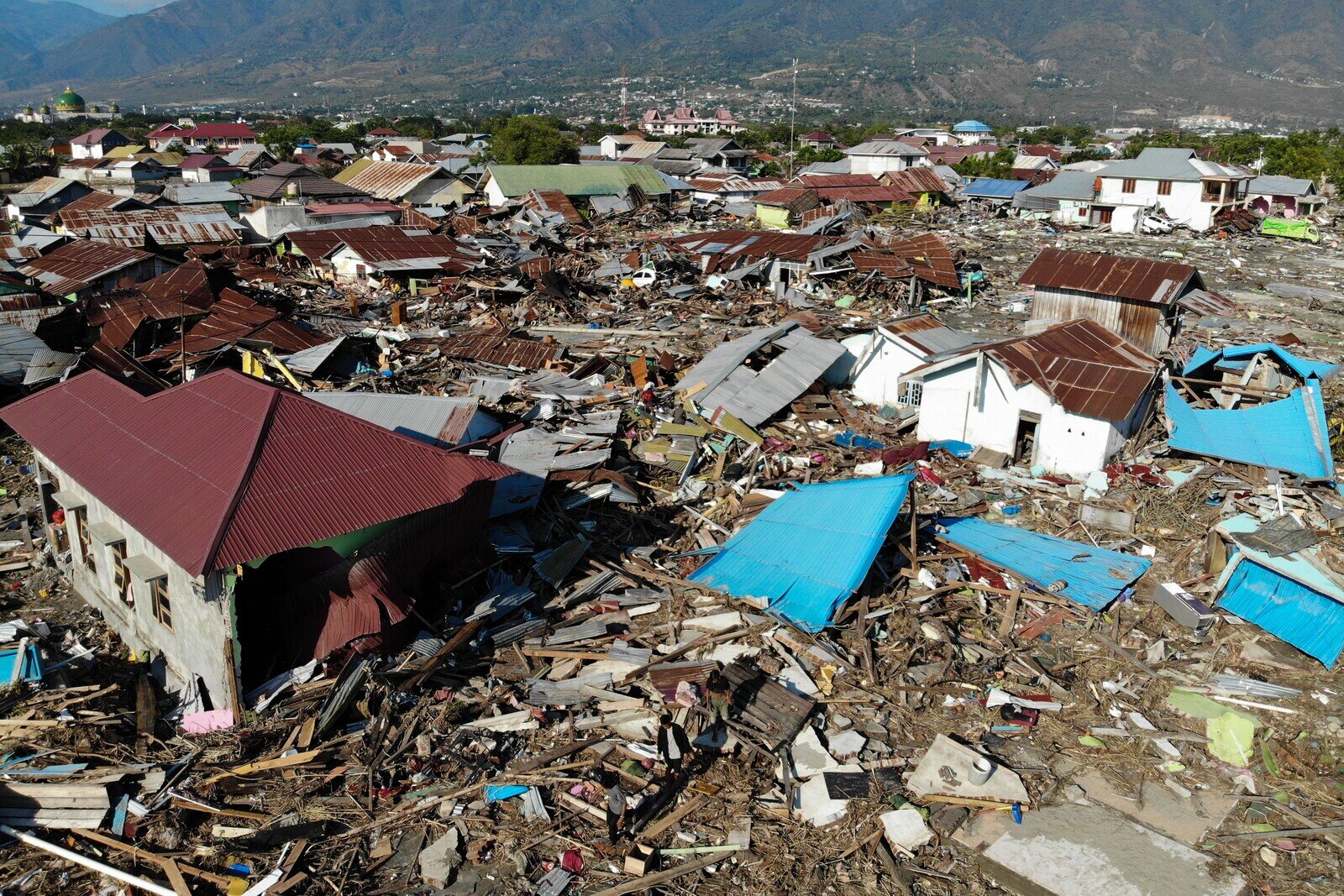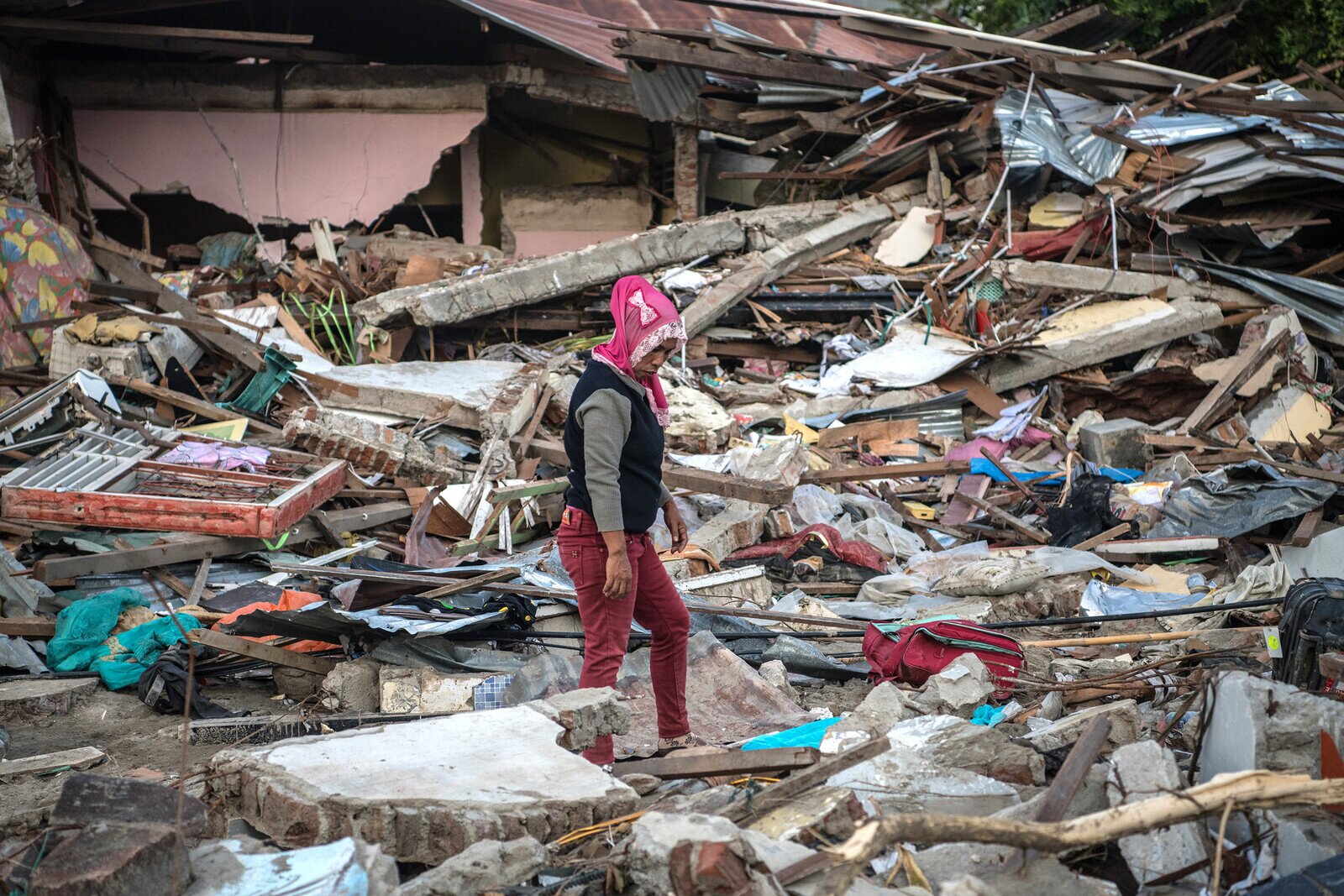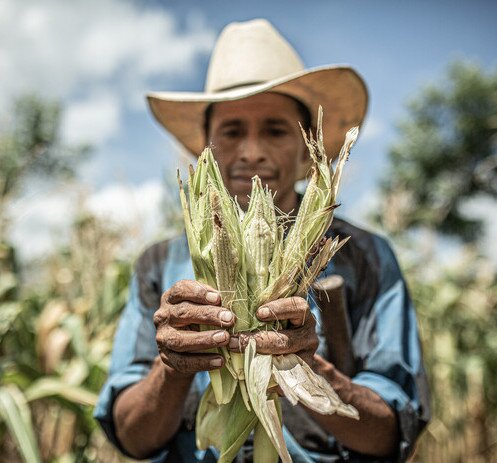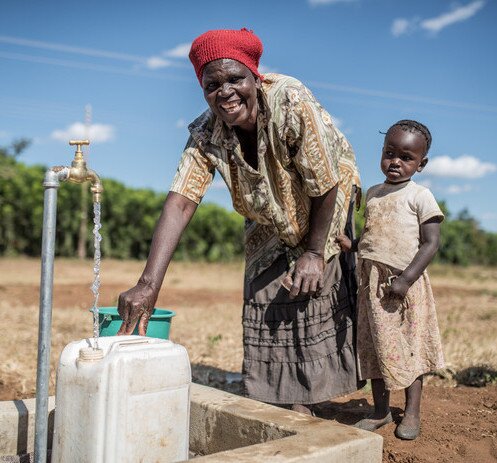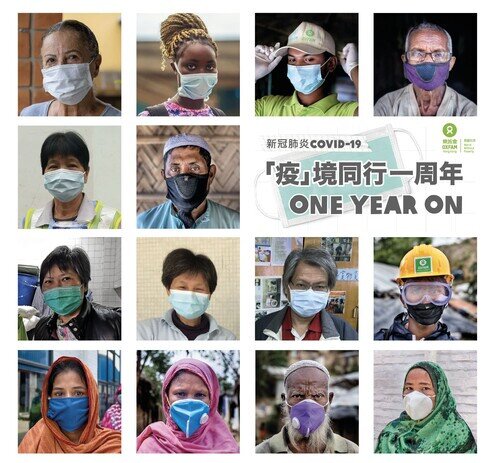Indonesia earthquake and tsunami
A 62-year-old woman receiving a hygiene kit from Oxfam in Dolo Seletan, a district outside of Palu. (Photo: Hariandi Hafid/OxfamAUS)
LATEST UPDATE
28 SEP 2019
Over the last 12 months since the disaster, we have reached more than 200,000 people across 125 villages in the region.
PREVIOUS UPDATE
28 MAR 2019
Within the first six months after the disaster, Oxfam reached over 180,000 survivors with relief. We distributed hygiene kits to around 120,000 survivors, built over 6,600 latrines, provided close to 28 million litres of water and involved over 20,000 survivors in our cash-for-work programme to help repair buildings and public facilities.
28 DEC 2018
Within the first three months, we reached over 100,000 people affected by the Sulawesi earthquakes by providing clean drinking water, setting up water points and pipelines, building toilets, and distributing hygiene kits. After this, we worked with affected communities to rebuild their livelihoods.
24 DEC 2018
Oxfam and our partners worked with Indonesian authorities and other humanitarian agencies to rapidly assess the needs and get help where it was needed as quick as possible. We provided clean water, built toilets, and distributed hygiene kits that included blankets and soap.
22 DEC 2018
Today, another devastating tsunami struck Indonesia following a deep-sea volcano eruption. The islands in Indonesia’s Sunda Strait, especially the Pandenglang area, South Lampung and Serang, were seriously affected. A reported 420 people were killed, and more than 10,000 injured. This is the second major natural disaster to hit Indonesia that has led to major casualties in just three short months.
02 OCT 2018
Oxfam’s team arrived in Palu city to assess the situation and transport relief items. Together with our partner organisations, we worked to scale up our response to support 500,000 people from 100,000 in Palu and Donggala District because of the severity of the situation.
01 OCT 2018
The Government of Indonesia officially requested international assistance.
28 SEP 2018
On 28 September 2018, a 7.5 magnitude earthquake struck Indonesia’s Central Sulawesi and triggered a tsunami.
The Situation

Central indonesia was badly hit by the devastating earthquake and tsunami in Sulawesi on 28 September 2018.
On 28 September 2018, a deadly earthquake and tsunami devastated Sulawesi, Indonesia. The double disaster claimed more than 2,000 lives and affected more than 2.4 million people. There were more than 400 aftershocks recorded since the major earthquake on 28 September. The quake and the tsunami triggered soil liquefaction that swallowed houses whole; people were scared of returning to their homes. More than 300,000 people became homeless.
This tragedy was the deadliest earthquake to strike Indonesia since the 2006 Yogyakarta earthquake, as well as the deadliest earthquake worldwide in 2018. Water and sanitation was also a big concern because water pipes had been destroyed and there was a severe shortage of clean water and toilets to prevent the spread of disease. Further, people needed food, healthcare and medical supplies to treat the injuired. Generators were also needed for lighting and to aid communications.
Government agencies started to work in the area to support survivors of the earthquake and the Government of Indonesia officially requested international assistance on 1 October 2018.
Oxfam’s response
Indonesia is one of the most disaster-prone nations in the world. By partnering with 23 civil society organisations in the Humanitarian Knowledge Hub, Oxfam has been actively working on strengthening the capacity of Palu’s local groups in the area of disaster risk management since 2017.
Oxfam immediately responded to the emergency through its partner network and were on the ground assessing the damage and destruction and began distributing relief within days. Over the last 12 months since the disaster, we have reached more than 200,000 people across 125 villages in the region. We have:
- provided more than 30,000,000 litres of clean water and built 398 toilets serving more than 8,100 people
- distributed more than 24,000 hygiene kits (consisting of a safe container for transporting water, soap, toothbrushes, toothpaste and sanitary towels) and around 25,000 water treatment tablets.
- taught at hygiene promotion classes for children in 30 villages with over 1,800 attendees.
- ran cash-for-work programmes in 19 villages with more than 36,000 people to rebuild Sulawesi.
One Year On
Salma (left) serves a customer at the food and tea shop she rebuilt after the earthquake. The Humanitarian Knowledge Hub formed by Oxfam and 23 partner organisations provided small cash grants to 3,500 people in Batu Suya and surrounding towns to help them recover from the quake. Salma used the money to buy household items and stock her stall. She begins her day at 2 am, preparing food before opening the shop for breakfast at 6 am. ‘I want my children to go to university and get a proper education,’ she says. (Photo: Elizabeth Stevens/Oxfam America)
Three Months On
Alfred, who joined our cash-for-work programmes, constructs a latrine in Sigi Regency, Central Sulawesi. Each latrine block takes around 10 days to construct and will provide safe sanitation spaces for around 120 people. The money he earns from the programme will be used to help his family cover the expenses for their daily needs.
Oxfam's Immediate Response
After the disaster hit, Mas'ad and her three children lived with their relatives in a makeshift camp for internally displaced people. The camp was near her destroyed house in Dampal village, Sinreja District, Donggala Regency, and was where they stayed for two months. The tremor destroyed her house during the second earthquake, but thankfully, her three children survived. Oxfam and its partners in the Humanitarian Knowledge Hub have distributed almost 500 tarpaulins and 400 sarongs for survivors of the earthquake in Dampal village. (Photo: Irwan Firdaus/Oxfam)
Oxfam’s Immediate Response
Dolo Seletan District, Sulawesi, Indonesia: Maria* and her family help unload Oxfam hygiene kits at a distribution outside Palu. Maria and her family had to evacuate their villiage due to the earthquake and tsunami, which hit Central Sulawesi on September 28 2018. (Hariandi Hafid/OxfamAUS) *Name changed

